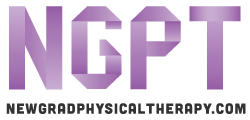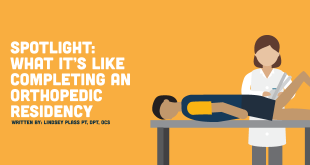Are you a physical therapy student eager to excel in your career? If so, then you're in the right place. Today, we're diving into the transformative power of the CSM Network and why it's an absolute must for aspiring physical therapists. Whether you're just starting your journey or nearing graduation, attending CSM Network events could be the key to unlocking your full potential in the field.
Understanding the CSM Network
At its core, the CSM Network is a vibrant community dedicated to advancing the field of physical therapy. It serves as a hub for networking, education, and collaboration among professionals, students, and researchers. As a member, you gain access to a wealth of resources, including cutting-edge research, mentorship opportunities, and exclusive events tailored to your career development needs. With the support of like-minded peers and seasoned experts, you'll be well-equipped to thrive in the dynamic world of physical therapy.
Importance of Networking for Physical Therapy Students
Networking isn't just a buzzword – it's a game-changer for your career. As a physical therapy student, building a strong professional network is essential for opening doors to job opportunities, gaining valuable insights, and staying abreast of industry trends. By connecting with peers, professors, and industry leaders through the CSM Network, you'll expand your circle of influence and lay the groundwork for future success.
Reasons Physical Therapy Students Should Attend CSM Network
Why should you prioritize attending CSM Network events? For starters, it's a prime opportunity to immerse yourself in the world of physical therapy beyond the classroom. From workshops and seminars to networking mixers and career fairs, there's no shortage of ways to engage with fellow students and seasoned professionals alike. Plus, by rubbing elbows with industry insiders, you'll gain invaluable advice, mentorship, and insider knowledge that can't be found in textbooks alone.
Testimonials and Success Stories
Don't just take our word for it – hear from fellow students who've reaped the benefits of the CSM Network firsthand. From landing coveted internships to securing job offers at top-tier facilities, their stories serve as a testament to the transformative power of networking and professional development. By harnessing the resources and support offered by the CSM Network, you too can chart a course for success in the field of physical therapy.
Addressing Common Questions
As you embark on your journey with the CSM Network, you may have questions about how to make the most of your membership. Rest assured, we're here to provide answers. Whether you're wondering about the value of networking events or seeking guidance on navigating the job market, our comprehensive FAQ section has you covered. Armed with knowledge and confidence, you'll approach each networking opportunity with purpose and poise.
Tips for Maximizing the CSM Network Experience
Ready to take your CSM Network experience to the next level? Follow these tried-and-true tips for making the most of your membership:
- Set clear networking goals to guide your interactions and conversations.
- Actively participate in events and discussions to expand your professional circle.
- Follow up with connections made at CSM Network events to nurture relationships and stay engaged.
- Leverage online platforms and resources provided by the CSM Network to enhance your learning and career development journey.
Conclusion: Forge Your Path to Success
In conclusion, attending CSM Network events is more than just a checkbox on your to-do list – it's a strategic investment in your future as a physical therapy professional. By immersing yourself in a supportive community of peers and mentors, you'll gain the knowledge, skills, and connections needed to thrive in this competitive field. So what are you waiting for? Join the CSM Network today and unlock a world of possibilities for your career in physical therapy.
Closing Remarks From the Author
Clinicians sometimes debate whether there is value in postprofessional residency and fellowship training. For me, the value lies within the goals of the individual.
Where do you want to take your career as a physical therapist?
What impact do you want to have on the growth of the profession?
Do you want to be a leader or business owner in a specialty or subspecialty area of practice?
Residency is more than just how you grow during your training, it is how you grow from it. So if your goals don’t end with earning your doctor of physical therapy degree, then residency is a valuable component your career path.
 NewGradPhysicalTherapy.com The Largest Online Resource For New Grad Physical Therapists
NewGradPhysicalTherapy.com The Largest Online Resource For New Grad Physical Therapists







Great article, but I am confused on the wording stating it is a requirement for fellowships to first attend a residency.Can you please provide your source for the following:
“If you are considering becoming a Fellow of the American Academy of Orthopaedic Manual Physical Therapists (FAAOMPT), fellowship candidates are required to have completed an orthopaedic residency program and have obtained ABPTS board certification as an Orthopaedic Clinical Specialist.”
I don’t believe you are required to have attended a residency to become a Fellow, it is just one of the paths to get there. Per the AAOMPT website, eligibility criteria is:
*Minimum of one year of post- professional orthopaedic clinical experience with one of the following:
*1. APTA residency training, 2) board certified clinical specialist credential (e.g., OCS), or 3) equivalent of the above determined through portfolio review process.
If there have been updates to the requirement please share.
Hi Ryan,
Thank you for sharing your feedback. I understand where the content was a little misleading and I have made some edits.
You are correct, generally speaking, residency is not always a requirement to participate in a fellowship program. However, when specifically discussing the topic of post-residency careers paths, completing an orthopedic residency program and subsequently obtaining the OCS credential is the most widely accepted requirement across all the OMPT fellowship programs. As you mentioned, there are other pathways to OMPT fellowship including: (1)demonstrating a minimum years of experience (I’ve seen as many as 5 years), and/or (2) being a credentialed clinical specialist in a related area, and/or (3) completing a residency program in a related specialty area. Admissions requirements do vary by program, so readers are encouraged to seek information from each program of interest for more specifics regarding admissions requirements.
Thanks again for commenting and allowing me to clarify.